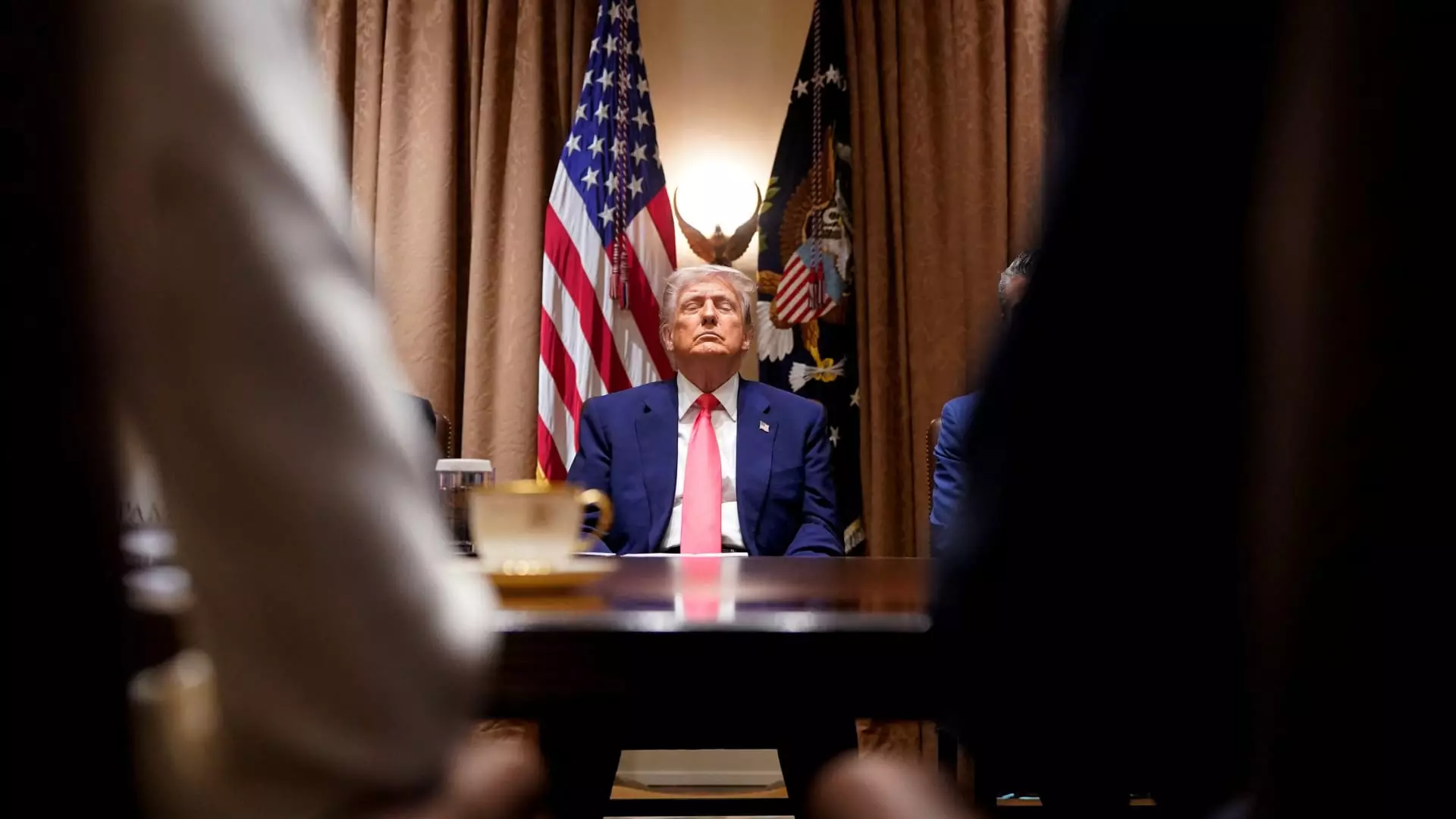In a bold stand against what they perceive as an executive overreach, five small businesses have taken the extraordinary step of suing President Donald Trump. The lawsuit, filed in the U.S. Court of International Trade, challenges the President’s recent imposition of tariffs on foreign imports, a move that they argue unconstitutional and harmful to their livelihoods. By invoking the International Emergency Economic Powers Act (IEEPA) in a manner never intended, Trump has allegedly crossed a line, claiming a “trade deficit emergency” that simply does not exist.
What grave dangers lurk behind this pretense of emergency? The plaintiffs assert that Congress, not the President, retains the sole authority to levy tariffs. Their assertion resonates powerfully in a political climate increasingly wary of unilateral executive actions that sidestep the legislative branch. This lawsuit is not merely a skirmish in the broader trade war; it raises profound questions about the balance of power embedded in the fabric of American democracy.
The Impact of Tariffs on Small Businesses
These tariffs, ranged from a troubling 10% to significantly higher rates for some nations, are wreaking havoc on small businesses across the country. As noted by the Liberty Justice Center, the losses are staggering. For instance, Terry Precision Cycling has already faced a punishing $25,000 in unexpected tariffs and anticipates facing burdens upwards of $1 million in just a few years. These aren’t merely numbers on a page; they represent real, life-altering impacts on small businesses struggling to keep their doors open and their employees paid.
The notion that trade deficits constitute an emergency is an absurdity that undermines rational economic discourse. Trade deficits have persisted in various forms for decades without catastrophic consequences. By declaring a national crisis over them, the President seems to exploit collective fears rather than address existing trade inequalities intelligently. The influx of hastily imposed tariffs raises the specter of retaliation, leading to a cycle of escalating tensions that could ultimately harm even the most resilient economic sectors.
The Legal and Ethical Implications of Tariff Authority
At its core, this lawsuit is an assertion of the principle that taxation without representation is a profound violation of democratic norms. The plaintiffs urge the court to recognize that Trump’s unilateral tariff actions violate the spirit and letter of representative governance. The Liberty Justice Center declares that the President’s misapplication of the IEEPA represents not only a legal misstep but a threat to the constitutional checks and balances that safeguard American liberties.
By circumventing Congress in executing such significant economic policy, Trump sets a dangerous precedent that could embolden future leaders to enact similar unilateralism. While the current administration’s approach may seem beneficial to some, it invites a spiral of unchecked executive power that could lead to unforeseen and potentially harmful repercussions down the line. It raises an essential question: If a President can impose tariffs by simply declaring a trade emergency, what other powers might they claim in the name of national interest?
In a time when political division often overshadows collective well-being, the ongoing legal battle between these small businesses and the Trump administration serves as a reminder of the fundamental values we risk losing. It urges a collective recalibration towards responsible governance that prioritizes true democratic engagement over autocratic impulses.


Leave a Reply